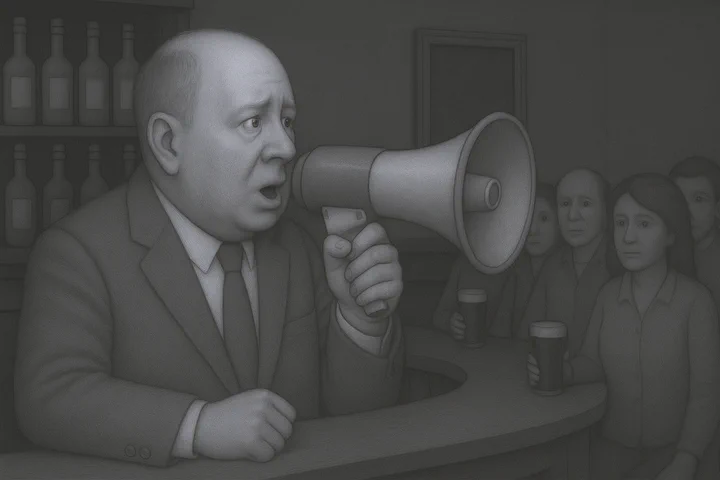Is South Korea’s democracy stronger after Yoon?

South Korea’s democracy survived its most recent stress test. Martial law was declared, swiftly overturned by the National Assembly, the President impeached, and those responsible held to account. For many (particularly for those outside Korea with limited knowledge), it was a victory for democracy that required no further explanation. This view is simplistic.
Cheering South Korea’s democratic victory hides the fact that a precedent has now been set, polarization entrenched, economic inequality ignored, and extremism accepted. It also hides and overlooks more nuanced constitutional questions hidden in blind democratic fervour.
In the wake of the constitutional reversal, South Korea’s top military leadership issued a public statement: they would not obey such an order again. Which should make one wonder why it was obeyed in the first place. It should also make one wonder what this means for the future.
The announcement that the military leadership would not obey such an order again was widely applauded by a public scarred by memories of past military rule. Martial law is a loaded term in Korean political history—it evokes the 1961 coup, the 1979–80 crackdown, and a long legacy of authoritarianism. The military’s refusal, many believed, symbolized democratic maturation.
But viewed through the lens of constitutional governance, the statement carries deeply troubling implications. However well-intentioned, the military’s categorical refusal to obey a future presidential order—any order, so long as it is within constitutional bounds—represents a potential breach in the democratic firewall of civilian supremacy.
South Korea’s constitution is clear: the armed forces are subordinate to the civilian government. Article 74 names the President, a civilian, as Commander-in-Chief. Article 5(2) requires that the military remain politically neutral, a clause inserted precisely to avoid the entanglement of armed forces in partisan or ideological struggles.
Martial law, for all its negative connotations, is not unconstitutional per se. It is a legal tool, tightly constrained and subject to oversight by the National Assembly. When it is abused—as happened in 2024—the proper democratic mechanisms kicked in. The Assembly revoked it, and the Constitutional Court ruled against its legality.
The system worked. But the lesson drawn by the military leadership—to never again follow such an order under any circumstances—damages that very system. In effect, the military has claimed the power to preemptively reject lawful orders on the basis of past experience, institutional memory, or even subjective opinion. That’s not a celebration of democratic principles. It’s a creeping constitutional threat.
Let’s imagine a hypothetical. A future crisis—perhaps a controversial one, involving mass unrest, foreign sabotage, a breakdown in civil order, or even disgruntled military commands. A democratically elected President, with support from the National Assembly, threatens to declare martial law in a limited region to quell the unrest and restore order. The military, recalling its 2024 stance, states that it will not accept a martial law declaration.
What happens next? Does the President resign? Does the government back down from its constitutional authority? Does the military dictate which laws and orders are acceptable?
At that point, civilian oversight has ceased to function. Even if the military’s decision is rooted in the defense of democracy, the result is a military veto over civilian decisions. And history shows that once armed forces feel empowered to reject commands based on subjective principles, constitutional erosion begins—no matter how noble the motive.
In fact, one could argue that the military’s public declaration—refusing in advance a hypothetical legal order—sets a precedent that invites instability. If the military can say “we won’t carry out X,” why can’t other institutions or regions declare “we won’t comply with Y”? That’s how a unitary, constitutional republic begins to fracture.
The military leadership’s declaration undoubtedly came from a place of democratic intent. They sought to reassure the public that the days of coups and military crackdowns were behind us. And it is true that the South Korean military has, in recent decades, shown restraint and professionalism. But democratic institutions do not function on sentiment or reputational signaling. They operate on legality and clearly defined chains of command.
If the military is concerned about martial law abuse, it can advocate for legislative reform, clearer guidelines, or narrower definitions of emergency powers. It can better train personnel on the constitutionality and legality of orders. What it cannot do—at least not without eroding democratic norms—is publicly pre-empt its constitutional duties.
Ironically, the most dangerous constitutional crises are not always dramatic. They don’t begin with tanks in the streets or barricades in parliament. Sometimes, they begin quietly—with an institutional shrug, a silent refusal, or a well-meaning press release that begins to shift power away from elected authorities and toward unelected ones.
That is the risk South Korea now faces. Nobody wants a public and legal discussion on martial law - because for most people, the result was the right outcome. But if the military can unilaterally declare that it will disobey a lawful future order, then we have entered a new and uncertain terrain in civil-military relations.
South Korea’s democratic system rightly protects against the abuse of emergency powers. The events of 2024 showed that the National Assembly and Constitutional Court are capable of reigning in overreach. But the military’s refusal to carry out future martial law orders—while superficially democratic—undermines the core principle of civilian supremacy.
When added to the extra-constitutional precedent, the entrenched polarization, the growing economic inequality, and the now tolerated or even accepted extremism, the refusal to carry out future martial law orders is significant. It situates the military as a political actor - something that is inimical to a well functioning democracy.
In a democracy, no institution should hold the right to pick and choose which lawful orders it will follow. Especially not the ones with guns.
